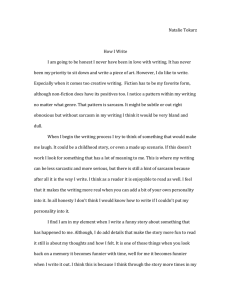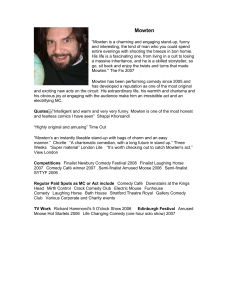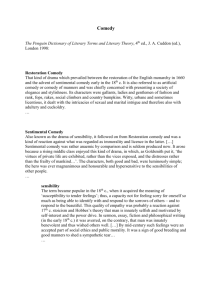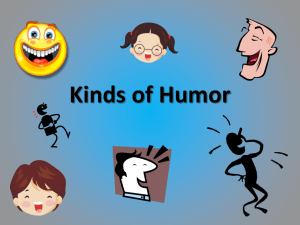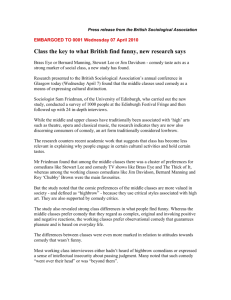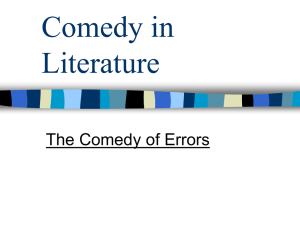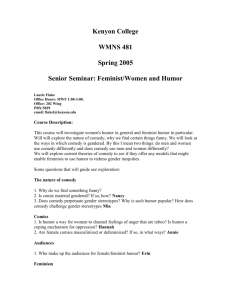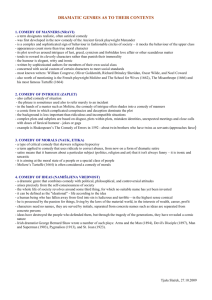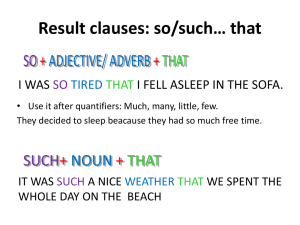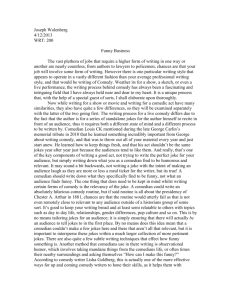Persuasion, Participation, and Pop Culture
advertisement
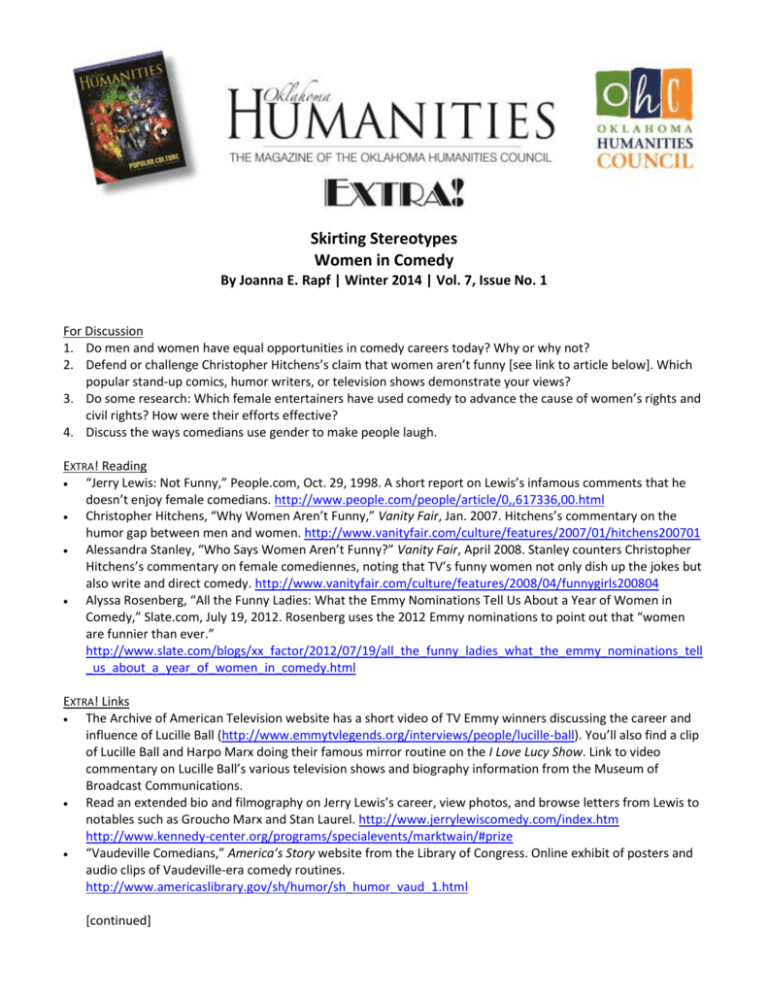
Skirting Stereotypes Women in Comedy By Joanna E. Rapf | Winter 2014 | Vol. 7, Issue No. 1 For Discussion 1. Do men and women have equal opportunities in comedy careers today? Why or why not? 2. Defend or challenge Christopher Hitchens’s claim that women aren’t funny [see link to article below]. Which popular stand-up comics, humor writers, or television shows demonstrate your views? 3. Do some research: Which female entertainers have used comedy to advance the cause of women’s rights and civil rights? How were their efforts effective? 4. Discuss the ways comedians use gender to make people laugh. EXTRA! Reading “Jerry Lewis: Not Funny,” People.com, Oct. 29, 1998. A short report on Lewis’s infamous comments that he doesn’t enjoy female comedians. http://www.people.com/people/article/0,,617336,00.html Christopher Hitchens, “Why Women Aren’t Funny,” Vanity Fair, Jan. 2007. Hitchens’s commentary on the humor gap between men and women. http://www.vanityfair.com/culture/features/2007/01/hitchens200701 Alessandra Stanley, “Who Says Women Aren’t Funny?” Vanity Fair, April 2008. Stanley counters Christopher Hitchens’s commentary on female comediennes, noting that TV’s funny women not only dish up the jokes but also write and direct comedy. http://www.vanityfair.com/culture/features/2008/04/funnygirls200804 Alyssa Rosenberg, “All the Funny Ladies: What the Emmy Nominations Tell Us About a Year of Women in Comedy,” Slate.com, July 19, 2012. Rosenberg uses the 2012 Emmy nominations to point out that “women are funnier than ever.” http://www.slate.com/blogs/xx_factor/2012/07/19/all_the_funny_ladies_what_the_emmy_nominations_tell _us_about_a_year_of_women_in_comedy.html EXTRA! Links The Archive of American Television website has a short video of TV Emmy winners discussing the career and influence of Lucille Ball (http://www.emmytvlegends.org/interviews/people/lucille-ball). You’ll also find a clip of Lucille Ball and Harpo Marx doing their famous mirror routine on the I Love Lucy Show. Link to video commentary on Lucille Ball’s various television shows and biography information from the Museum of Broadcast Communications. Read an extended bio and filmography on Jerry Lewis’s career, view photos, and browse letters from Lewis to notables such as Groucho Marx and Stan Laurel. http://www.jerrylewiscomedy.com/index.htm http://www.kennedy-center.org/programs/specialevents/marktwain/#prize “Vaudeville Comedians,” America’s Story website from the Library of Congress. Online exhibit of posters and audio clips of Vaudeville-era comedy routines. http://www.americaslibrary.gov/sh/humor/sh_humor_vaud_1.html [continued] See photos and read biographies of American Jewish women who made careers in comedy—from Fannie Brice to Gilda Radner. Includes an essay by Joyce Antler, “The Gift of Jewish Women’s Comedy,” and a video trailer from the film “Making Trouble,” a documentary about six Jewish women whose comedy made an indelible impact on their world. http://jwa.org/discover/infocus/comedy Mark Twain Prize for American Humor, The Kennedy Center. Read bios on Prize winners, link to articles, and watch video clips from the red carpet. http://www.kennedy-center.org/programs/specialevents/marktwain/ Resources are compiled by author(s) and editorial staff. Any views, findings, conclusions, or recommendations expressed in these materials do not necessarily represent those of the National Endowment for the Humanities or the Oklahoma Humanities Council, its Board of Trustees, staff, or donors. Teachers and parents are advised to preview materials for appropriateness. Internet links to outside sources may change or be discontinued without our knowledge. Please report links that are re-routed to offensive material: ohc@okhumanities.org
